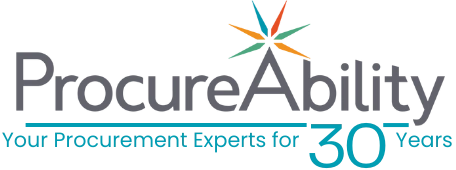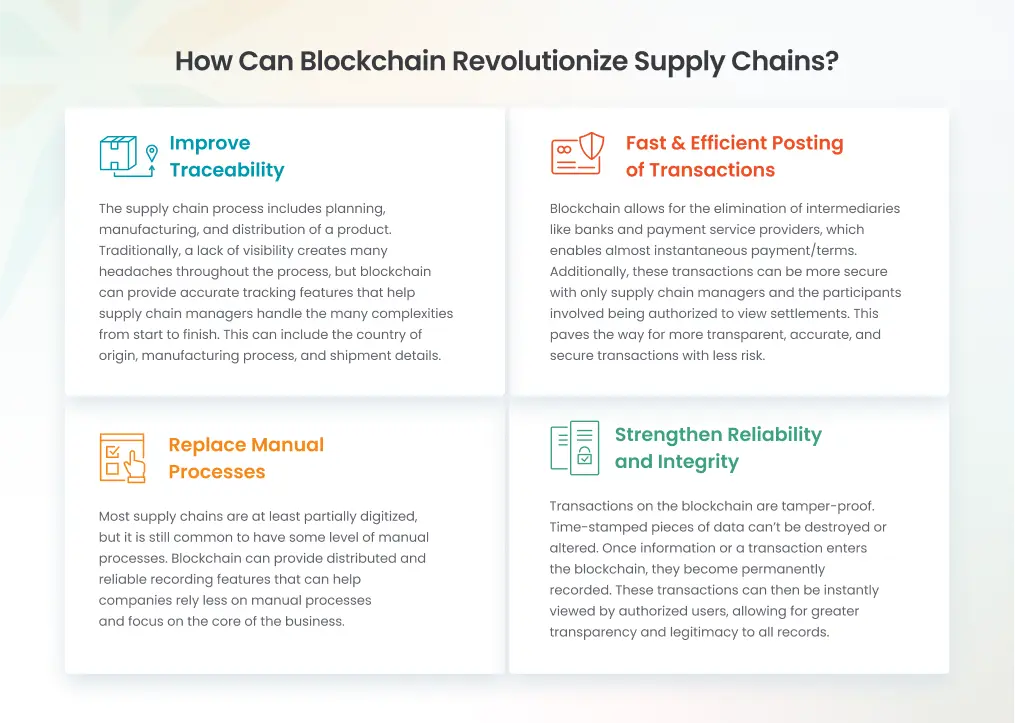
As supply chains grow increasingly complex, customers and regulators demand transparency up the chain. Blockchain technology offers a solution to provide this transparency along with many other benefits. By focusing on the visibility and availability of specific data, blockchain helps supply chain leaders build and maintain resiliency for the future.
Transparency drives the supply chain world. Customers expect honesty, openness, and accountability about product origins, while companies work to manage complex systems, control costs, and minimize errors. Blockchain has emerged as a tool to simplify data management, organize documents and contracts, and streamline communication across the supply chain ecosystem.
What is Blockchain?
Blockchain is a cloud-based digital ledger that records information and transactions across networks of computer systems. It is a type of Distributed Ledger Technology (DLT) and acts as a decentralized database managed by multiple participants.
Information is stored in a chain of secure “blocks.” This structure allows partners to upload data at any time, while the blockchain retains all copies. As a result, blockchain provides real-time information and tracks chronological changes, becoming a single source of shared data for all participants.
What are the Benefits of Blockchain?
There are numerous benefits to blockchain including:
Secure – Transactions are logged in blocks and all of them are individually encrypted.
Distributed – Each participant can access and has a copy of the ledger as it works like a digital record that is accessible to a network of individuals.
Programmable – Gives you the capability to create and run applications, like smart contracts.
Time-Stamped – Every transaction recorded on a block is timestamped, paving the way for even more transparency.
Immutable – Blockchain technology was designed for robust security features, and validated records can no longer be altered or reversed.
 Blockchain Industry Applications:
Blockchain Industry Applications:
Blockchain technology is now reaching many industries, including some with highly complex supply chains and strict regulatory requirements. It also addresses the growing demand for transparency. Industries such as healthcare and pharmaceuticals, banking and finance, food and farming, tourism, oil, fashion, and jewelry are especially poised for disruption through blockchain applications.
Food Supply Chain:
In the food industry, partnerships link growers, suppliers, processors, distributors, and retailers. This connection strengthens the entire supply chain and improves operations and tracking from end to end. Greater transparency and efficiency help track foodborne epidemics and reduce wasted inventory, which current systems often discard.
Walmart, IBM, JD.com, and Tsinghua University are researching and implementing blockchain technology to manage shipping and manufacturing processes. As the project progresses, other major companies—such as Nestle, Unilever, and Tyson Foods—are likely to join the joint venture.
Some initiatives use QR codes to stop illegal wine production. Companies place QR codes on bottles so shoppers can scan them and access full supply information. These programs are only the beginning of a system that could give customers complete product information at the click of a button.
Diamonds and Jewels Supply Chain:
The diamond industry faces many challenges, especially regarding working conditions. In many cases, diamonds are mined under dangerous or inhumane conditions. They can also be used to finance conflicts in key mining regions, mainly in Africa.
The world’s largest diamond producer, De Beers, aims to end this cycle with a blockchain supply chain program called “Tracr.” Participants in the program upload photos and information about the color, quality, and location of cut diamonds. The goal is to increase transparency and prevent illegal mining worldwide.
Brilliant Earth, a jewelry company, is following this approach. They use blockchain to track and trace the origin of their diamonds, gemstones, and precious metals, ensuring legitimacy. As customers become more aware and concerned about the origins of their purchases, companies that use blockchain in their supply chains can gain a competitive advantage.
Looking Ahead: Blockchain’s Transformative Potential in Supply Chain
Every indication suggests blockchain will be a game changer in supply chain. Early adopters are using it to manage and track assets, regulate and audit supply, track sales, and improve processes with smart contracts. Some are even accepting cryptocurrency as payment and enhancing their digital identity.
Blockchain is still in its early stages but has the potential to revolutionize supply chain management. Its growth is expected to accelerate in the coming years. However, transformation takes time in established industries and processes. Combined with robotics, automation, and machine learning, blockchain could become the default technology in supply chains and fully realize its transformative potential.
Sources:
- “4 Ways Blockchain Is Revolutionizing Supply Chain!” Supply Chain Game Changer, 2021
- “Blockchain for Supply Chain Solutions.” IBM, IBM Corporation, 2020
- “Blockchain’s Critical Role in Supply-Chain Transparency.” SupplyChainBrain, 2020
- “Building a Transparent Supply Chain: Blockchain Can Enhance Trust, Efficiency, and Speed.” Harvard Business Review, 2020
- “Blockchain in Supply Chain Management: Key Use Cases and Benefits.” Medium, 2019
- “How Blockchain Is Redefining Supply Chain Management.” Medium, 2021
- “The Next Great Leap in Supply Chain Transparency: Blockchain!” Supply Chain Game Changer™, 2021
- “How Blockchain Will Redefine Supply Chain Management.” Knowledge@Wharton, 2019
- “5 Examples Of Blockchain In Supply Chain Management.” Oyelabs, 2021
- “Blockchain and the Supply Chain” Redwood Logistics, 2023


 Blockchain Industry Applications:
Blockchain Industry Applications:
